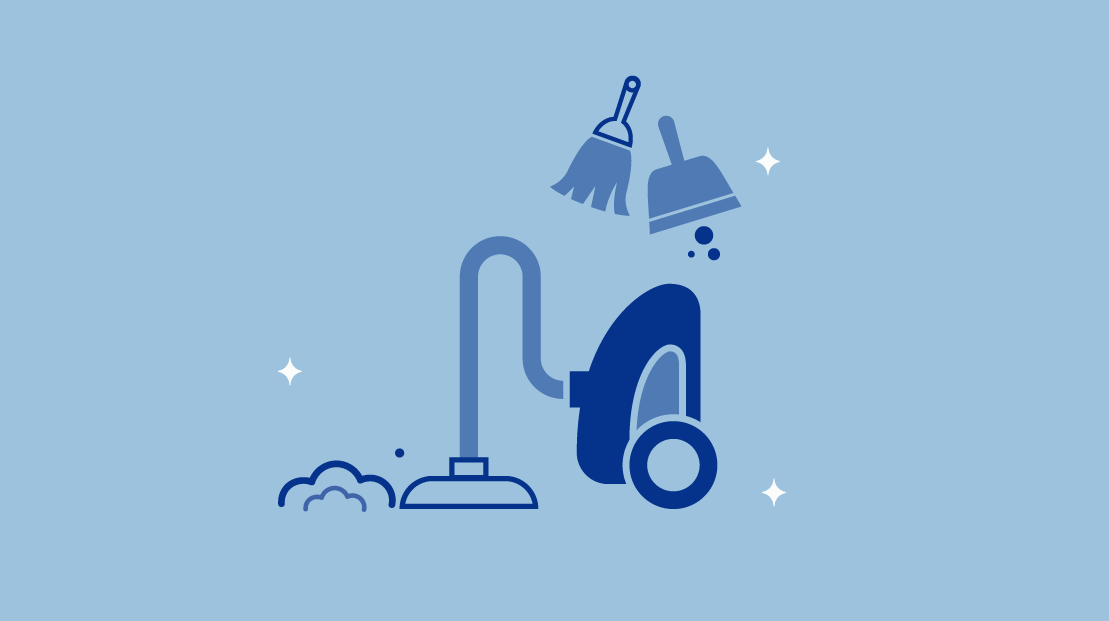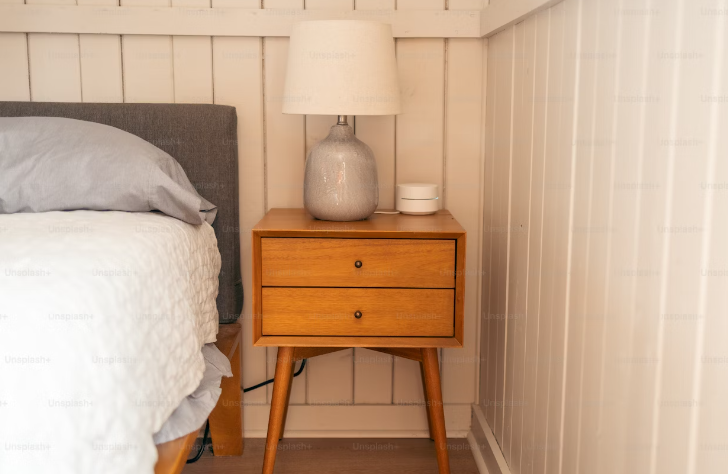Key Takeaways
- Comprehensive Prevention: Understanding mouse behavior, sealing entry points, and eliminating attractants such as food crumbs are crucial steps in preventing mice from entering your bed. This comprehensive approach involves creating an environment that is unappealing to mice, reducing the likelihood of infestations and ensuring a peaceful night’s sleep.
- Strategic Traps and Natural Deterrents: Employing mouse traps, including snap traps and natural deterrents like peppermint oil-soaked cotton balls, can be effective in managing existing mouse issues. Strategic placement of traps in areas prone to mouse activity and using natural repellents contribute to a proactive and humane approach to dealing with mice without resorting to harmful chemicals.
- Immediate Action and Maintenance: If mice are discovered in your bed, taking immediate action, including setting traps, cleaning the area, and sealing entry points, is essential to prevent a larger infestation. Regular maintenance, such as keeping the bedroom clean, organized, and free of attractants, ensures long-term success in keeping mice away from your sleeping space.
Many homeowners may find themselves facing the unwelcome presence of mice in their living spaces, particularly in areas like bedrooms where we spend significant time, including while sleeping. Dealing with a mouse infestation can be both bothersome and unsanitary.
Mice bother homeowners by causing damage to property and spreading diseases. It’s not uncommon for people to discover mouse droppings or even come across a mice nest, signaling the urgent need to address the issue.
In this article, we’ll explore effective strategies on how to keep mice away from your bed, ensuring a peaceful night’s sleep without the hassle of dealing with the challenges of killing mice or managing an infestation. From preventative measures to dealing with mouse traps, we’ve got you covered for creating a mouse-free sleeping environment.
So, let’s get started on keeping mice away from your bed for good!
Understanding Mouse Behavior and Entry Points
To effectively keep mice away from your bed and out of the home, you need to understand how they behave and enter your bedroom. One attraction for mice is food crumbs, which is why it’s important to clean up any leftover food in your room.
Waking up to find mouse droppings in your bed is a clear indicator that your bedroom is dealing with a mouse infestation. Gnaw marks Verified Source Centers for Disease Control and Prevention (CDC) The United States’ health protection agency that defends against dangers to health and safety. View source in your room are another sign you’re dealing with rodents like mice. They may be on your wall, on furniture, or they may chew up food wrappngs.
“You may never see a mouse or rat unless an infestation is severe,” Verified Source Environmental Protection Agency (EPA) Works to control/prevent natural and manmade disasters. View source short for the Environmental Protection Agency.
However, female mice can give birth to dozens of babies each year, so even one mouse in your bedroom can quickly turn into a bedroom mice infestation. Additionally, mice can carry and spread harmful diseases to humans and pets. Mice can carry diseases like salmonella and hantavirus, which could be very harmful to your health. Plus, they can carry other, smaller pests Verified Source Environmental Protection Agency (EPA) Works to control/prevent natural and manmade disasters. View source like fleas, ticks, and mites.
If you find signs of bed mice, it’s necessary to address the problem immediately. To take steps to prevent mice, it’s crucial to properly seal entry points and eliminate any food sources.
Remember that mice are excellent climbers and can crawl through small holes that are a quarter inch wide. They can also gain access to your sleeping area by direct contact with objects that they can climb, like bedposts or curtains.
Setting Up Mouse Traps and Using Home Remedies
Keeping mice away from your bed can be challenging, but using mouse traps and home remedies can help. There are different types of mouse traps to choose from, including snap traps, glue traps, and electronic traps. Snap traps are the most efficient in killing mice but require careful placement in areas where mice crawl or nest.
In addition to traps, there are natural remedies that you can use to repel mice. Peppermint oil is an excellent natural deterrent due to its strong smell, which mice dislike. Soaking cotton balls in peppermint oil and placing them strategically around your bed can help keep mice away. Keep in mind that mice are excellent climbers, so place the cotton balls out of reach.
It’s worth noting that while mouse traps and home remedies can be effective, they may not prevent other pests from entering your bedroom. If you have a serious pest control problem, consider consulting with a professional to eliminate the source of the infestation to keep rodents out of your personal space.
Sealing Entry Points and Eliminating Food Sources
If you want to keep mice away from your bed area, it’s crucial to seal every entry point and eliminate potential food sources that might be attracting them. To accomplish this, you’ll need to locate any small holes or quarter-inch-wide entry points in your bedroom and surrounding areas. You can use steel wool or other durable materials to seal these openings, making it harder for mice to enter.
Additionally, check your bedroom for any other objects that could be drawing mice, such as crumbs left behind, food sources, or greasy tracks. Be sure to clean up any messes promptly and store food securely to prevent mice from gaining direct contact with it. Home remedies like cotton balls soaked in peppermint oil can also deter rodents when placed in strategic areas.
Leaky pipes or your pets’ water bowls can attract mice in search of water. By sealing entry points and eliminating food sources, you can prevent mice from residing in your sleeping space and ensure a peaceful night’s rest, free from unwanted visitors.
Maintaining a Clean and Organized Bedroom
If you’re a homeowner, you know just how important it is to keep your bedroom clean and clutter-free, especially if the room doubles as a sleeping place. Rodents like mice and rats can crawl into your room through holes about one foot wide.
That’s why keeping your bedroom neat is your best bet to prevent mice from infesting your bed and sleep space. Do not bring food and stop eating in your bedroom.
Besides decluttering and organizing, you should also strive to keep food away from your sleeping area, as crumbs and leftovers can attract rodents. By creating an environment that’s unappealing to rodents, Verified Source Environmental Protection Agency (EPA) Works to control/prevent natural and manmade disasters. View source you help to keep your space free from mice and pests. If you have cats, you can use their strong scent as a natural deterrent against rodents since mice don’t like the smell of cats.
In conclusion, when it comes to keeping rodents away from your bed and bedroom, maintaining a clean and organized sleeping space is one of the easiest and most effective ways to achieve this objective.
Paying Special Attention to Walls and Sleeping Areas
Keeping mice out of your bedroom can be a daunting task, as they can easily hide and nest in your walls. To prevent an infestation, pay special attention to the walls and sleeping areas in your bedroom.
Start by checking for cracks and crevices in the walls where mice can crawl through. Use sealant or steel wool to fill any small holes or gaps that are a quarter inch wide or larger. This will prevent mice from entering your bedroom and making a nest.
Cleaning up crumbs and food sources in your room is also essential. Mice are attracted to any bits of food left lying around, so ensure that any crumbs are cleared away, and food containers are always sealed tight.
If you have pets, pay special attention to where they sleep, as mice may be attracted to their food or bedding. Additionally, keep clutter to a minimum and maintain a clean and organized sleeping area.
Cats can also be a natural ally in keeping mice at bay, as they are excellent climbers and can sense the presence of rodents. Consider getting a cat, or if you have one already, allowing it to sleep in your bedroom to help keep mice away.
Taking Action if You Find Mice in Your Bed
Even with your best efforts to keep mice out of your bed, it’s still possible for them to find a way in. If you discover mice in your bed, it’s important to take action immediately to prevent an infestation.
Step 1: Don’t Panic and Assess the Situation
Firstly, don’t panic. Mice are nocturnal creatures and prefer to venture out at night, so try not to disturb them during the day. Assess the situation and determine the extent of the infestation. If there are only a few mice, you may be able to remove them yourself.
Step 2: Remove the Mice
Use gloves and a mask to protect yourself from any potential diseases or harmful bacteria in mouse droppings. Close all doors and windows to prevent the mice from escaping into other parts of your home.
Step 3: Set Traps and Clean the Area
Set mouse traps in areas where the mice are present, such as near their entry points or hiding spots in your bedroom. Be sure to dispose of the mice safely and sanitize the area where they were caught. Use vinegar or a natural disinfectant to break down any odors that may attract more mice.
Step 4: Address Attractants and Entry Points
Look for any attractants that may be drawing mice to your bed, such as food crumbs, clutter, or blankets. Address these areas to remove the attractants and clean up the mess. Again, seal any entry points or holes where mice may be gaining access to your bedroom.
By taking these steps, you can effectively remove mice from your bed and prevent a larger infestation. Remember to keep your bedroom clean and tidy, and regularly inspect for any signs of mice presence to avoid future issues.
When to Seek Professional Help for Mice in the Bedroom
Calling rodent control professionals Verified Source Environmental Protection Agency (EPA) Works to control/prevent natural and manmade disasters. View source for a mouse issue in your bedroom ensures a systematic and tailored approach to mouse management, providing not only expertise but also ongoing monitoring and preventive measures. This proactive step contributes to a mouse-free and healthier sleeping environment.
Calling in professionals to address a mouse issue in your bedroom becomes crucial under specific circumstances.
Persistent Presence
If mice persistently infiltrate your bedroom despite your attempts to control them, seeking the expertise of professional pest control is advisable. Professionals can assess the situation comprehensively and implement effective strategies to eliminate the mice and prevent further intrusions.
Health and Hygiene Concerns
Mice in the bedroom pose potential health risks due to their droppings and urine. If you experience unexplained health issues, allergies, or respiratory problems that may be linked to mice, consulting with professionals is essential. They can conduct a thorough inspection, mitigate health risks, and employ safe methods to eradicate the mice.
Structural Integrity
Mice can cause structural damage by gnawing on various materials. If you notice signs of damage within your bedroom, such as gnawed wires or compromised insulation, professional pest control can assess the extent of the damage and implement measures to prevent further harm.
Uncertain Entry Points
Identifying and sealing entry points is crucial for effective mouse control. If you’re unsure about how mice are entering your bedroom, professionals can conduct a precise inspection to locate entry points accurately. This ensures targeted solutions to prevent future infestations.
Time-Sensitive Situations
In cases requiring urgent attention, such as a rapidly growing infestation or the presence of mice in critical areas like bedrooms, professionals can respond promptly. Their timely intervention ensures a swift resolution, preserving the sanctity of your bedroom and the well-being of its occupants.
Ethical and Humane Considerations
For those who prefer a humane approach to dealing with mice, professionals can offer guidance on ethical and safe methods. They may employ traps that capture rather than harm the mice, and provide advice on prevention strategies to discourage future infestations without resorting to inhumane practices.
More to Keep an Eye Out for
Mice are not the only pests that can take up space in your bedroom. It’s crucial to remain vigilant for various others, including bed bugs, spiders, fleas, ants, scabies mites, lice, and cockroaches. Even the presence of mold and mildew can pose a challenging infestation to eliminate once they establish a foothold in your bedroom.
- What Attracts Bed Bugs and How to Prevent Them
- How to Get Rid of Bed Bugs in a Mattress
- What Do Bed Bugs Look Like?
- Signs You Have Fleas in Your Bed
- Can Termites Get in My Bed?
- Should I Be Concerned About a Tick in Bed?
- Should I Be Concerned About a Silverfish in Bed?
- How To Treat Your Mattress For Lice
- How to Keep Centipedes Out of Your Bed
- How to Get Rid of Ants in Your Bed
- How to Get Rid of Scabies From Mattress
- How to Keep Spiders out of the Bedroom
- How to Keep Cockroaches out of the Bedroom
- How to Get Rid of Flies in the Bedroom
- What to Do About Bees in the Bedroom
- How to Get Rid of Mosquitos in the Bedroom
- What to Do if a Bat Gets into Your Bedroom?
- Mold in Bedroom: Do You Need to Worry?
- How to Spot Mold on Mattress & What to Do About It
FAQs
Will sleeping with lights on keep mice away?
No, sleeping with lights on is ineffective for keeping mice away. Mice are nocturnal creatures and are less likely to be deterred by light. Instead, focus on sealing entry points such as gaps and cracks, keeping your bedroom clean of food crumbs, and employing preventive measures to make your space less attractive to mice. You should strategically place traps where mice are likely to be active.
Will mice crawl on you while sleeping?
While it’s uncommon for mice to crawl on people while they sleep, it’s not impossible. Mice are generally wary of humans and prefer to avoid direct contact. However, they may explore the sleeping area if they perceive a food source nearby. To prevent this, ensure your bedroom is free of food remnants, and take steps to seal entry points. If needed, consider using traps as a proactive measure.
How do I keep mice out of my bedroom?
Keeping mice out of your bedroom involves a multi-faceted approach. Begin by sealing potential entry points, such as gaps in walls and windows. Maintain cleanliness by regularly cleaning your bedroom and storing food in airtight containers or even in a mini fridge in the bedroom. Employing mouse traps strategically, especially in areas prone to mouse activity, can help control the population. Additionally, consider using natural deterrents like peppermint oil or essential oil-soaked cotton balls to create a less attractive environment for mice.
What attracts mice to your bedroom?
Mice are drawn to bedrooms for various reasons. Food crumbs, spills, or uncovered food can be a significant attractant. Additionally, the warmth of the bedroom, especially during colder months, may entice mice seeking shelter. Cluttered areas, such as piles of clothing or cardboard boxes, provide hiding spots for mice. Addressing these factors by maintaining cleanliness, sealing entry points, and reducing clutter can make your bedroom less appealing to mice.
What can I put around my bed to keep mice away?
Consider using natural repellents such as peppermint oil, eucalyptus, or citronella to deter mice around your bed. Soaking cotton balls in essential oils and placing them in corners or near potential entry points can be an effective strategy. Additionally, you can strategically place mouse-repellent sachets filled with dried herbs like mint or bay leaves. Regularly refreshing or replacing these deterrents and overall preventive measures will create a mouse-free environment around your bed.
Conclusion
To keep mice out of your bed, it’s essential to understand their behavior and entry points. Use mouse traps or natural remedies to seal any entry points and eliminate food sources to avoid attracting mice and other rodents from being a bother, it’s crucial to eliminate potential food sources and secure your living space.
Finding mice, especially a female rat in your home should prompt immediate action to prevent an infestation. Maintaining a clean and organized bedroom is also crucial in keeping mice away. And if you do find mice in your bed, take immediate action to address the issue. By following the steps outlined in this article, you can prevent mice from bothering you at night and have a peaceful sleep.
About the author
Geoff McKinnen is a writer focusing mainly on the healthcare industry and has written articles on everything from foods to help you lose weight to the connection between Alzheimer’s and sleep. Geoff’s passionate about helping readers improve their well-being to lead happier lives. Outside of work, Geoff enjoys cycling and hiking and believes that by leading a healthy lifestyle, he can help others do the same.
View all posts





